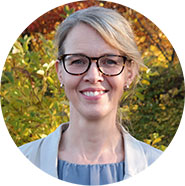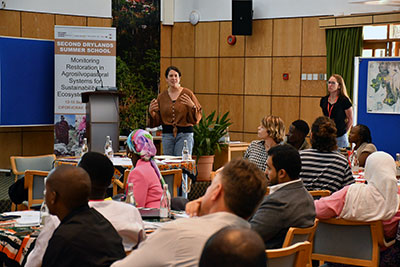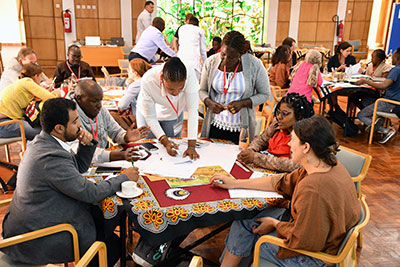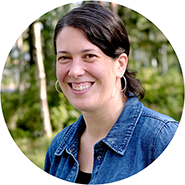Facts:
More information
Read more about the IYRP 2026
Related pages:
Some of the research projects connecting to the IYRP 2026:

Rangelands cover half of the Earth’s surface, supporting over 2 billion people and more than 50% of the world’s livestock. Despite their importance, they are often overlooked. The UN has declared 2026 the International Year of Rangelands and Pastoralists (IYRP) to raise awareness about their value and the need for protection. SLU is actively involved, contributing through research, education, and collaborations. Discover SLU's ongoing projects and opportunities for cooperation in support of the IYRP.
Rangelands cover half of the Earth’s surface, supporting over 2 billion people and more than 50% of the world’s livestock. Despite their importance, they are often overlooked. The UN has declared 2026 the International Year of Rangelands and Pastoralists (IYRP) to raise awareness about their value and the need for protection. A global coalition of partners, organisations and individuals have formed an international support group to lay the foundation for a successful international year in 2026. SLU is involved in various ways and has a range of expertise – find out what activities are ongoing and what opportunities there are for cooperation.
At SLU, there is a wealth of expertise in rangelands and pastoralism. Our research in these areas is crucial for understanding and addressing global health challenges. Through interdisciplinary collaboration, we develop sustainable solutions that promote both our environment and the health of humans and animals – in a One Health approach. SLU is committed to contributing to increased knowledge and capacity of relevance to the IYRP. Issues relating to rangelands and pastoralists are at the heart of many of SLU’s collaborations and processes. Our researchers contribute through different partnerships to an increased understanding of the role of rangelands and pastoralism for food security, economy, environment, and cultural heritage. Here, we present some of our collaborations and research projects.
Last May, SLU provided a letter of support to the IYRP, joining a global coalition of about 400 organisations representing pastoral associations, NGOs, academia, national governments, media, private sector and intergovernmental and multinational organisations.

Sara Gräslund, Head of SLU Global:
“SLU is committed to contributing to increased knowledge and capacity of relevance to the IYRP. Issues relating to rangelands and pastoralists are at the heart of many of SLU’s collaborations and processes. Our researchers contribute through different partnerships to an increased understanding of the role of rangelands and pastoralism for food security, economy, environment, and cultural heritage.” Photo: Malin Planting
The health of rangelands globally directly impacts biodiversity, soil fertility, water quality, and carbon sequestration, affecting the planet's overall health. Healthy rangelands provide livestock grazing, a crucial source of protein and income for many communities. Hence, the degradation of rangelands can lead to food insecurity. The health of rangelands can also impact human health directly through the spread of zoonotic diseases from livestock to humans. Indirectly, rangeland degradation can lead to changes in water quality and food availability, affecting human health and well-being. Finally, healthy rangelands play a vital role in climate change mitigation and adaptation.
Reindeer husbandry is a pastoral system practised in Northern Europe and is a central part of the Indigenous Sámi culture and livelihood. Researchers at SLU are engaged in research, education, and collaborations to develop knowledge that strengthens the long-term sustainability of reindeer husbandry. The research focuses on the production conditions of reindeer husbandry in interaction with the surrounding world and on finding solutions to help reindeer husbandry cope with external stressors. These stressors include those caused by natural factors, such as climate change and predators, and those resulting from industrial activities and other human impacts on the land.
Individual researchers can join some of the existing IYRP Working Groups. The tasks of the working groups include collating and analysing existing research results, identifying knowledge and information gaps, stimulating and engaging in participatory research to fill gaps, analysing existing international policy related to the theme, strategising on appropriate key messages, identifying targets for science- and experience-based advocacy, and engage with pastoralists in disseminating these messages for public awareness.
Existing working groups are: Afforestation, Biodiversity, Climate change, Gender, Land Degradation Neutrality (LDN), Mountains, Pastoral economy, Rangelands commons, Water, and Youth.
Are you interested in collaborating or leading a working group?
It is also possible to suggest and lead new working groups that are relevant but missing, e.g. on animal health. If you are interested in joining some of the existing working groups or would like to start a new one, please contact global@slu.se.
The Food and Agriculture Organization (FAO) facilitates implementing the IYRP 2026. In September 2023, FAO’s Committee on Forestry (COFO) Working Group on Dryland Forests and Agrosilvopastoral Systems organised the first Drylands Summer School in Amman, Jordan, in partnership with SLU and the IYRP 2026, among other partners.

Photo of the Summer school: Pedro Herrera
In September 2024, the second edition of the Drylands Summer School took place in Nairobi, Kenya. This second edition focused on monitoring restoration in agrosilvopastoral systems for improved sustainability and ecosystem services. The summer school brought together around 25 dryland foresters and silvopastoral practitioners, planners and policymakers to improve their current and planned actions in drylands and rangelands and deepen their knowledge of how to create contextual solutions to address critical challenges in drylands.

Photo of the Summer school: Pedro Herrera
SLU researcher Aida Bargués-Tobella, who leads the research project Restore4More, facilitated three sessions at the summer school together with project partners at CIFOR-ICRAF and showcased innovative monitoring tools such as the Land Degradation Surveillance Framework (LDSF) and the Regreening App, including their application in Restore4More.

“It was fantastic engaging and sharing knowledge with this group of dryland champions from all over the world,” says Aida. Photo: Daniel Stjärna
Read more about the IYRP 2026
Related pages:
Some of the research projects connecting to the IYRP 2026:
SLU Global supports SLU's work for global development to contribute to Agenda 2030.
SLU Global
Vice-Chancellor's Office
Agricultural Sciences for Global Development
PO Box 7005, SE-750 07 Uppsala
Visiting address: Almas Allé 7
global@slu.se www.slu.se/slu-global
Subscribe to our newsletter and follow us in social media.